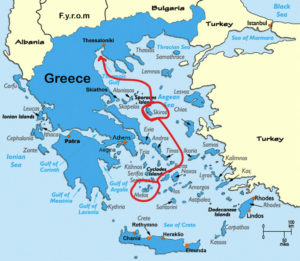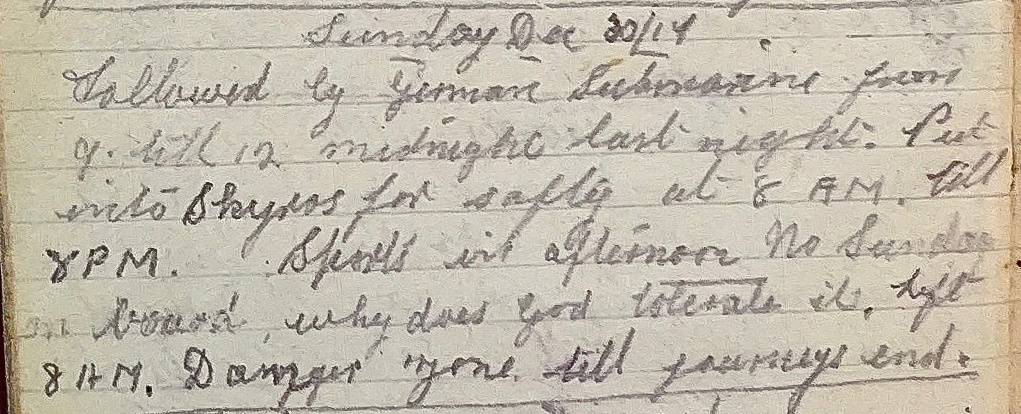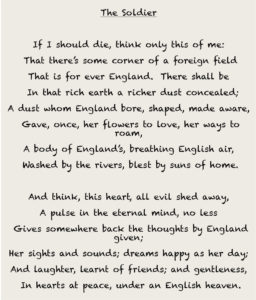Sunday Dec 30th, 1917
Followed by German submarine from 9 till 12 midnight last night. Put into Skyros for safety at 8am till 8pm. Sports in afternoon. No Sunday on board, why does God tolerate it? Left 8pm. Danger zone till journey’s end.
U-Boat Danger
After enjoying the beauties of the Cyclades, Frank is now facing the realities of war. His small convoy is being tracked by a submarine.

As AJP Taylor noted: ‘The system of convoys was never universal … In the Mediterranean a few Austrian and German submarines reaped a rich harvest. The British had to sustain France and Italy; they had to supply the vast armies in Palestine and at Salonika.’¹
Furthermore, the German and Austrian submarines were known to patrol the seas close to busy ports and shipping routes – hence Frank’s reference to being in the ‘danger zone till journey’s end’. This map shows the journey from Milos to Skyros and the route to Salonika.
Skyros is an island of Greece. It is part of the Sporades, an archipelago in the Aegean Sea.
Rupert Brooke

Skyros is the resting place for Rupert Brooke (1887-1915), one of the most famous of the British War Poets, albeit one who died before seeing or being influenced by the horrors of war. He died of sepsis caused by an infected mosquito bite in April 1915. He had been on his way to Gallipoli.
Winston Churchill (under his initials WSC) wrote an obituary for him in ‘The Times’ on April 26th, 1915: ‘..this life has closed at the moment when it seemed to have reached its springtime….. Joyous, fearless, versatile, deeply instructed, with classic symmetry of mind and body, ruled by high undoubting purpose, he was all that one would wish England’s noblest sons to be in days when no sacrifice but the most precious is acceptable, and the most precious is that which is most freely proferred.’ Ironically, the obituary appeared just above another appeal for volunteers under the headline ‘Lord Kitchener gratified but not satisfied’.²
Brooke’s own poem is eerily prescient:
References & further reading
¹ ‘An Illustrated History of the First World War’ by AJP Taylor (Penguin Books)
² ‘Death of Mr Rupert Brooke’ by WSC in ‘The Times’ April 26th, 1915
³ ‘The Soldier’ by Rupert Brooke (public domain)



